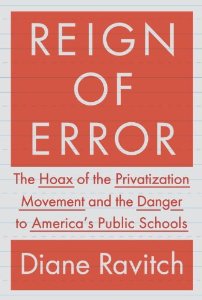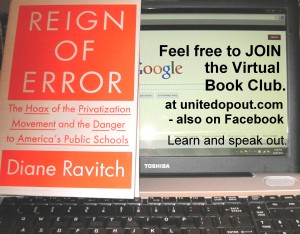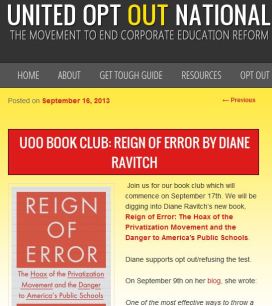How I teach 2.6 months more of math in a year than the rest of you slackers
A report was recently released which according to some TFA defenders “settles the issue” about the effectiveness of Teach For America teachers. By comparing the standardized test scores of TFA teachers with varying amounts of experience to non-TFA teachers teaching in the same buildings, the study concludes that the students of TFA secondary math teachers progress an amazing 2.6 months more than their non-TFA counterparts. In the introduction to the paper they describe this as follows:
which according to some TFA defenders “settles the issue” about the effectiveness of Teach For America teachers. By comparing the standardized test scores of TFA teachers with varying amounts of experience to non-TFA teachers teaching in the same buildings, the study concludes that the students of TFA secondary math teachers progress an amazing 2.6 months more than their non-TFA counterparts. In the introduction to the paper they describe this as follows:
 which according to some TFA defenders “settles the issue” about the effectiveness of Teach For America teachers. By comparing the standardized test scores of TFA teachers with varying amounts of experience to non-TFA teachers teaching in the same buildings, the study concludes that the students of TFA secondary math teachers progress an amazing 2.6 months more than their non-TFA counterparts. In the introduction to the paper they describe this as follows:
which according to some TFA defenders “settles the issue” about the effectiveness of Teach For America teachers. By comparing the standardized test scores of TFA teachers with varying amounts of experience to non-TFA teachers teaching in the same buildings, the study concludes that the students of TFA secondary math teachers progress an amazing 2.6 months more than their non-TFA counterparts. In the introduction to the paper they describe this as follows:TFA teachers were more effective than the teachers with whom they were compared. On average, students assigned to TFA teachers scored 0.07 standard deviations higher on end-of-year math assessments than students assigned to comparison teachers, a statistically significant difference. This impact is equivalent to an additional 2.6 months of school for the average student nationwide.
As you might expect, this conclusion was celebrated throughout Twitter.
As a TFA secondary math teacher myself, I was torn about how I felt about this. I mean, I knew that I was good, but I didn’t realize that I was that good. Then my humility set in and I had to admit to myself that this study’s conclusion was pretty outrageous and merited a closer look. And though others, particularly Jersey Jazzman and Julian Vasquez Helig
and Julian Vasquez Helig , have examined different aspects of this report and there will surely be others who delve into it more deeply, I will focus on one aspect which easily demonstrates how absurd and really irresponsible this claim is.
, have examined different aspects of this report and there will surely be others who delve into it more deeply, I will focus on one aspect which easily demonstrates how absurd and really irresponsible this claim is.
 and Julian Vasquez Helig
and Julian Vasquez Helig , have examined different aspects of this report and there will surely be others who delve into it more deeply, I will focus on one aspect which easily demonstrates how absurd and really irresponsible this claim is.
, have examined different aspects of this report and there will surely be others who delve into it more deeply, I will focus on one aspect which easily demonstrates how absurd and really irresponsible this claim is.The issue I wanted to investigate most is how they came up with the number 2.6 months. When a student takes some kind of standardized tests, lets say it has fifty questions, their score is some kind of raw score, like 24 correct out of 50. It isn’t measure in ‘months.’ So there must








![Robert Reich and Bill Moyers discuss financial inequality [BillMoyers.com]](http://www.rawstory.com/rs/wp-content/uploads/2013/09/Robert-Reich-and-Bill-Moyers-discuss-financial-inequality-BillMoyers.com_.jpg)






.jpg)